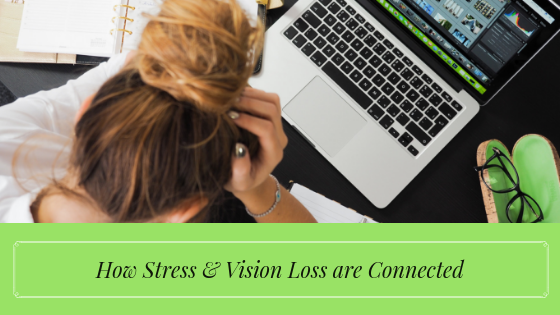Meetings, projects, errands, and appointments. That’s only the beginning of how hectic most people’s daily schedules can be. It’s little wonder, then, that Americans are among the most stressed in the world. Last year, more people reported feeling stressed than they have been at most points during the past decade. That is according to Gallup’s annual global emotions report.
What is Stress?
In its most basic form, stress is the brain and body’s response to exterior stimuli, whether positive or negative. Positive stress, called eustress, is often believed to be advantageous. It can help you push through taxing situations such as running a marathon, writing a four-page essay on literature, or speaking in front of a large crowd. Most people will experience this relatively brief stress type on occasion.
In contrast, negative stress can be physically and emotionally demanding. However, a more pressing concern is the toll it can take on your health. Severe health conditions can consequently develop when negative pressures continue for a prolonged duration.
Stress and Vision Loss
A recent study, published in the EPMA Journal, suggests that prolonged stress can negatively impact your vision due to imbalances in the body’s autonomic nervous system. The paper also cites vascular dysregulation as a contributing factor to stress-related vision loss. Ultimately, researchers concluded that “stress is both a consequence and cause of vision loss.”
Managing stress, whether positive or negative, is essential for ensuring optimal wellbeing and preventing more serious physical ailments and eye disorders. According to the same study, “…stress may also be one of the major causes of visual diseases, such as glaucoma and optic neuropathy.” Common symptoms of stress-related eye problems include, but may not be limited to, the following:
- Dry eye
- Eyestrain
- Headaches
- Blurry vision
- Eye twitching
Eye floaters are another common symptom of stress. Eye floaters are little spots that hang out in your field of view. They are usually small, dark, and shadowy. According to the National Eye Institute, floaters move as your eyes move, but do not quite follow your eye movements. That is because they are suspended in the vitreous body; the clear gel that fills the space between the eye’s lens and retina.
Although eye floaters are common, they can be cause for concern when they suddenly multiply or are possibly accompanied by light flashes or peripheral vision loss. These are signs of a severe condition called retinal detachment. If you are experiencing any of these symptoms, please schedule an appointment with your eye physician immediately, as retinal detachment is a significant risk factor for vision loss.
Four Tips for Managing Stress
Practice Mindfulness
Mindful activities range from coloring, meditating, or practicing yoga to connecting with nature. Recent studies have shown that the great outdoors can be hugely beneficial. Next time the outdoors calls, answer by completing a day hike, kayaking down the Colorado River, or picnicking in a neighborhood park. You may want to consider slowly easing yourself into more intense activities to avoid elevating your cortisol levels.
Exercise Regularly
Working out is one of the best methods for reducing stress. The American Heart Association recommends aiming for at least 150 minutes of moderate or 75 minutes of vigorous aerobic activity each week. You should also train your muscles twice a week. Many gyms and fitness studios offer a variety of classes that encourage social interaction as well as exercise. These classes may even be included in your membership.
Eat a Healthy Diet
Your body and brain need healthy fuel to stay energized. That is a given, but what you may not have considered is how reducing your intake of highly processed, or sugary foods can affect your mood. The key is to find a sustainable diet. Beloved by nutrition experts everywhere, the Mediterranean diet emphasizes eating fresh produce, healthy fats, and fish. The U.S. News and World Report even crowned this eating plan as the best overall diet.
Schedule a Comprehensive Eye Exam
Routine screenings can help prevent serious eye diseases. Safeguard your vision today by contacting Eye Physicians of North Houston at (281) 893-1760. Our office treats eye disorders such as cataracts, glaucoma, diabetic retinopathy, eye floaters and flashes, and more. Schedule an appointment today to receive compassionate, state-of-the-art eye care from one of our eye physicians.
Resources:

